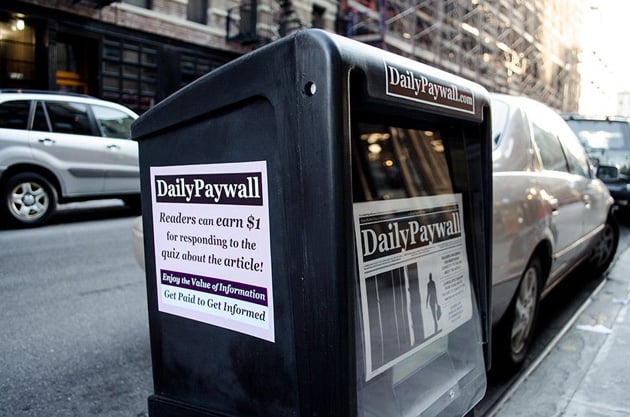
Paulo Cirio, the Daily Paywall. Photo: Paulo Cirio.
There are few things in modern life that a more frustrating than an online paywall preventing you from reading an intriguing news article. With that in mind artist Paolo Cirio has launched Daily Paywall, a new website which protests traditional news outlet attempts to limit public access to information.
The website is designed to hack the RSS feeds of The Economist, Financial Times and the Wall Street Journal, to which Cirio has paid for subscriptions, and automatically import and reproduce their content. He’s already been running these scripts for a full year. So far, there are 600,000 articles on the site.
Cirio doesn’t stop at just making this pirated content available to the public, however: after each piece republished on the Daily Paywall, readers will be asked a simple question about the story they just read. If they pass the quiz, they are awarded a dollar, sourced via crowdfunding. Donors can opt to give to the project, or to the author of the articles they are reading—Cirio encourages them to claim payment.
Paulo Cirio, the Daily Paywall. Photo: Paulo Cirio.
The controversial project is “a cocktail of share economy, crowdfunding, piracy, art market, and labor exploitation for making political propaganda,” the artist told Motherboard. “I strongly believe that information must be free and knowledge accessible for everyone, especially if the material regards corrupted global economy and politics, because access to it would enhance democracy.” Cirio cites other websites that make their revenue through ads, rather than subscriptions, as a model to follow.
The artist’s multi-pronged attack also includes a print edition featuring a curated selection of the publications, which he is distributing across New York city. Calling himself an “open access advocate,” Cirio promised that “I will always proudly break barriers to access information, and as an artist I’ll always provide settings to understand it better.”